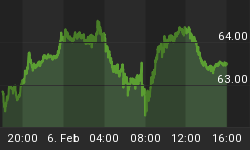Not unexpectedly, the Bolivian government has seized the production facilities of the various gas and oil producers within their borders. The companies have 180 days to accept new terms or be evicted from Bolivia. In a continued socializing of natural resources in South America, higher oil prices are causing governments across the world to eye profit rich oil companies with envy.
Let us make no mistake about this, if oil was still trading at $20 a barrel, this would not be happening. In a classic spider and fly routine, governments invite foreign energy companies in when oil is too cheap to make exploration a sure deal. They ensure these companies bear the cost of the billions involved in exploration and bringing resources into production.
The result for government is happy voters in energy employment and a stream of royalties for the treasury. But at the back of the mind of every government is the thought that they can seize the assets of these companies any time they want in the "national interest". If the companies don't like the new terms and conditions, they can leave (without their production facilities).
Should we sympathize with the foreign companies? Yes, in the sense that this is a classic "politics of envy" scenario and they were the ones who did the work setting things up. No, in the sense that they don't own the oil and gas under their rigs. It is no surprise that governments want a bigger slice of the pie for their vote winning agendas. It is no surprise that poorer Bolivians saw the burgeoning wealth of oil companies and decided to vote for a piece of the action.
So the time has arrived in South America for resource nationalization. Globally speaking, this is not important. Bolivia only produces a paltry 40,000 barrels per day of oil. It has much more natural gas (estimated reserves of 60Tcf) but again their market seems to be largely confined to their Latin American neighbors - especially Brazil who gets half of its gas from Bolivia and is none too happy about the situation.
However, in a world where natural resources will continue to climb in price, it is an increasing truism that he who has the energy makes the rules. If current global tightness in supplies is indeed the Herald of Peak Oil, then this form of energy nationalization will only continue and will spread into other resources such as metals as increasingly impoverished governments realize how valuable these underground assets are.
This is not altogether a win-win situation for Bolivia. Foreign capital is going to start draining from the country as nervous investors pull out. Moreover, like Aramco and Pemex, we are going to see the fat appear on the efficiency of these operations as bureaucracy increases and jobs for the sake of it begin to fill every corner of these facilities.
The royalties may increase but the cost of running the operation will increase as well. That won't matter to the government or its voters so long as they hold the reins of energy extraction. In all aspects of life, including energy, the symbolism of complete control is all too often the only dogma that matters.
But what about gold and silver in this context? I pulled up a list of gold and silver mining companies who have projects ongoing in Bolivia. As a sample I picked Apex Silver, General Minerals Corporation, Golden Eagle Corporation, Coeur D'Alene and Vista Gold. At the time of writing they were respectively -8.2%, 0.0%, -12.0%, -0.58% and +1.46% against an HUI uptick of +1.24%.
Of course, general market conditions have to be taken into account as well as how much of the company's overall reserves are tied up in one country. But evidently the news of this resource grab in Bolivia has unnerved precious metals stock investors. The worst performer (MYNG.OB) not surprisingly has the most leverage to Bolivian metal resources. Apex Silver also has its flagship San Cristobal project in southwest Bolivia.
Is this just a passing blip offering a buying opportunity to precious metal investors or do they have to tread more carefully in future? What will governments do when they see gold go to $2000 or silver to $50? Does Peak Oil especially fuel resource nationalisation as the trend of the future or do we just simply avoid South American producers?
As it happens, Bolivia does not produce much in the way of gold and silver, in fact their gold production is in decline. Zinc is their main product but the warning signs are there and at least demand a renewed appraisal of the balance between bullion and stocks in an increasingly uncertain world.
Roland Watson writes the investment newsletter The New Era Investor that can be purchased for an annual subscription of $99. To view a sample copy of the newsletter, please go to http://www.newerainvestor.com/ and click on the "View Sample Issue Here" link to the right.
Comments are invited by emailing the author at newerainvestor@yahoo.co.uk.















